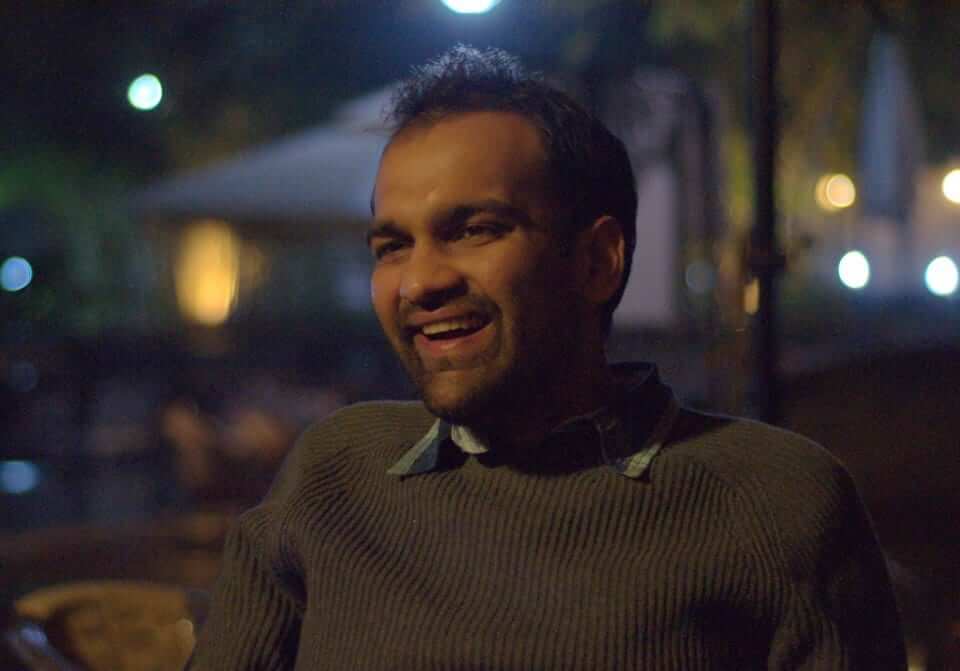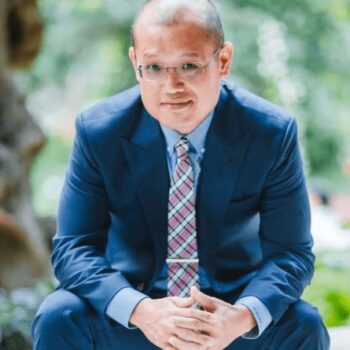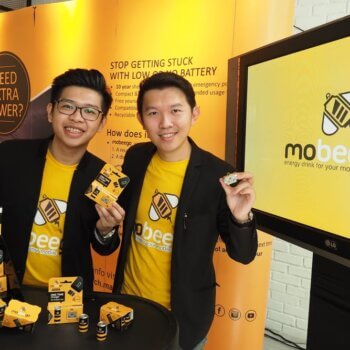Prior to Haptik, Aakrit ran global business operations for Flurry, the leader in mobile analytics and advertising solutions. One of the earliest hires at Flurry in San Francisco, he was instrumental in the company’s growth going from $0 to $100m and along the way moved to Mumbai to start and run the India office. Flurry was acquired by Yahoo in July 2014. In 2013, Aakrit also Co-Founded and was the lead investor in Flat.to, an accommodation search platform for college students, acquired by Commonfloor.com in April 2014. He is an active adviser and investor in Indian technology startups, and a frequent speaker at industry events particularly on mobile and emerging markets. For his work on Haptik, he was awarded a contender for Forbes India 30 under 30 in 2015. Aakrit started his career at Deloitte Consulting in their San Francisco Technology practice, and prior to that he got his B.S. in Industrial Engineering from the University of Illinois, Urbana-Champaign.
In your own words what is Haptik?
Haptik is Everyone’s Personal Assistant to get things done on chat. Users can simply outsource their headache to a Haptik Assistant, rather than having to work themselves. So whether it’s finding the cheapest flight, or the best deals available online to making a Restaurant Reservation & booking a Spa appointment – Haptik does it all over messaging. People can now sit back, relax & tend to the more important things in life while we take care of all this extra work.
How did you come up with the idea of Haptik?
I was a big fan of the mobile messaging space since 2009 when the App Stores were still in their infancy. As part of my role at Flurry, I got to regularly interact with companies like WhatsApp and others, and witnessed the phenomenal engagement tehse apps would see. Combine that with the fact that even after more than two decades of the Internet, finding information and support for products and services remains a pain. Particularly on mobile. It requires you to open up a bunch of Google links on a small screen, or have to call the company and we all are aware of the frustrations of dealing with call center support. With Haptik, you can just send a message to a certified expert and get responses within minutes. This was the biggest trigger that led to Haptik.
Could you walk us through the process of starting up Haptik?
The idea behind Haptik was first generated in November 2011. Swapan and I were still at our jobs at that time. We started working on prototyping in about February 2012, trying to figure out what the app should look like. We tried various versions, and kept doing this part time for another year (on nights and weekends). Eventually, by the start of 2013, we had realized this was too big an opportunity to not pursue. So, we quit our jobs and started Haptik in August 2013. We kept iterating and working with alpha, beta users to figure out the right solution, and finally launched Haptik in India on March 31, 2014.
Did you encounter any particular difficulties during startup?
Changing consumer behavior is always a massive challenge. And combine that with something so innovative like what we are trying to do, it gets even trickier. The biggest challenge for us was to keep experimenting until getting the product market fit right. And when you’re not generating any revenue or salary at that time, it can get demotivating. So, as cliché as it gets, perseverance when the chips are down and going the extra mile is key to success.
How have you been developing Haptik since startup?
Our team has now grown to 25 people, with an additional 300 Assistants who answer user queries. The no #1 focus of the company right now is User Adoption and Engagement i.e. make Haptik a daily habit amongst people.
What kind of feedback did you get for Haptik so far?
We have received phenomenal feedback on the app so far, we’ve been shortlisted by Google twice on the play store. The first time in the productivity feature along with global giants like Dropbox & Gmail and the second time in the Essential Apps Feature Collection. Besides that we have a 4.5+ rating on both the playstores.
What is your strategy against your competition?
The industry we are in is pretty nascent, and I don’t have to shy away from saying that Haptik is one of the first in the space. So while there is competition it’s very minimal & not so direct. Our strategy has been very simple since the start to focus on the users & the subsequent product we are building, till the time we get that right there isn’t much to worry about because this space is still evolving.
Have you developed any industry insights that you could share?
Mobile messaging is going to eat up the world. It is the most convenient way to get things done, and we are going to see more and more apps in this space.
13. What is the future of the industry and how do you plan to stay relevant in this industry?
We believe in the core value proposition of the product. If users will continue to love us, we will be just fine.
Were there anything that disappointed you initially?
Nothing I can think of. It has been extremely challenging all along, but I wouldn’t call anything that we have experienced “disappointing”.
What do you think about being an entrepreneur in Asia? Is it harder or easier, why?
I think it depends on the country you are in. There is a massive difference to being an entrepreneur in India to say Singapore. I can speak for my experience in India. Its much more challenging to get a business up and running in India due to the regulatory, system and infrastructure challenges. However, the opportunity here to build a tech company is huge given the market size.
What is your opinion on Asian entrepreneurship vs Western entrepreneurship?
Again, I think a place like Singapore is very similar to the West. However, India is very different. In India, you need people who can hustle like nothing else. We call term here locally “jugaad”. Its all about finding loopholes in the system to use it for your own benefit.
What is your definition of success?
Making a huge positive impact on the world.
Why did you decide to become an entrepreneur?
It was always the plan, second nature all my life. I was born and raised in an entrepreneur family where no one has ever done any kind of “job”. I did not know what it meant to work for someone else till I was 18. So, it wasn’t as if one day I woke up and “decided” to become an entrepreneur; I always knew that’s what I would do and it was only a matter of time.
In your opinion, what are the keys to entrepreneurial success?
Perseverance. That’s it. It can be the most demotivating job anyone can have, but as long as you have belief and can persevere, you’ll most likely come out succeeding.
Any parting words of wisdom for entrepreneurs out there from your personal experience?
Don’t start a company because you want to start one. Start a company because you have an idea you cannot stop thinking about, and want to go do something about it. Entrepreneurship is not for everyone, and that’s okay. Don’t do it because its cool – do it because you think you can be good at it.
Connect
Website: www.haptik.co
FB: www.facebook.com/haptik
Twitter: www.twitter.com/hellohaptik
LinkedIn: https://www.linkedin.com/company/3475348?trk=tyah&trkInfo=clickedVertical%3Acompany%2Cidx%3A2-1-2%2CtarId%3A1428184751667%2Ctas%3Ahaptik
Personal Profiles:
Website: www.aakrit.in
FB: www.facebook.com/aakrit.vaish
Twitter: www.twitter.com/aakuvaish
LinkedIn:
https://www.linkedin.com/profile/view?id=48559172&authType=NAME_SEARCH&authToken=0hN0&locale=en_US&trk=tyah&trkInfo=clickedVertical%3Amynetwork%2Cidx%3A1-1-1%2CtarId%3A1428184830742%2Ctas%3Aaakrit





























